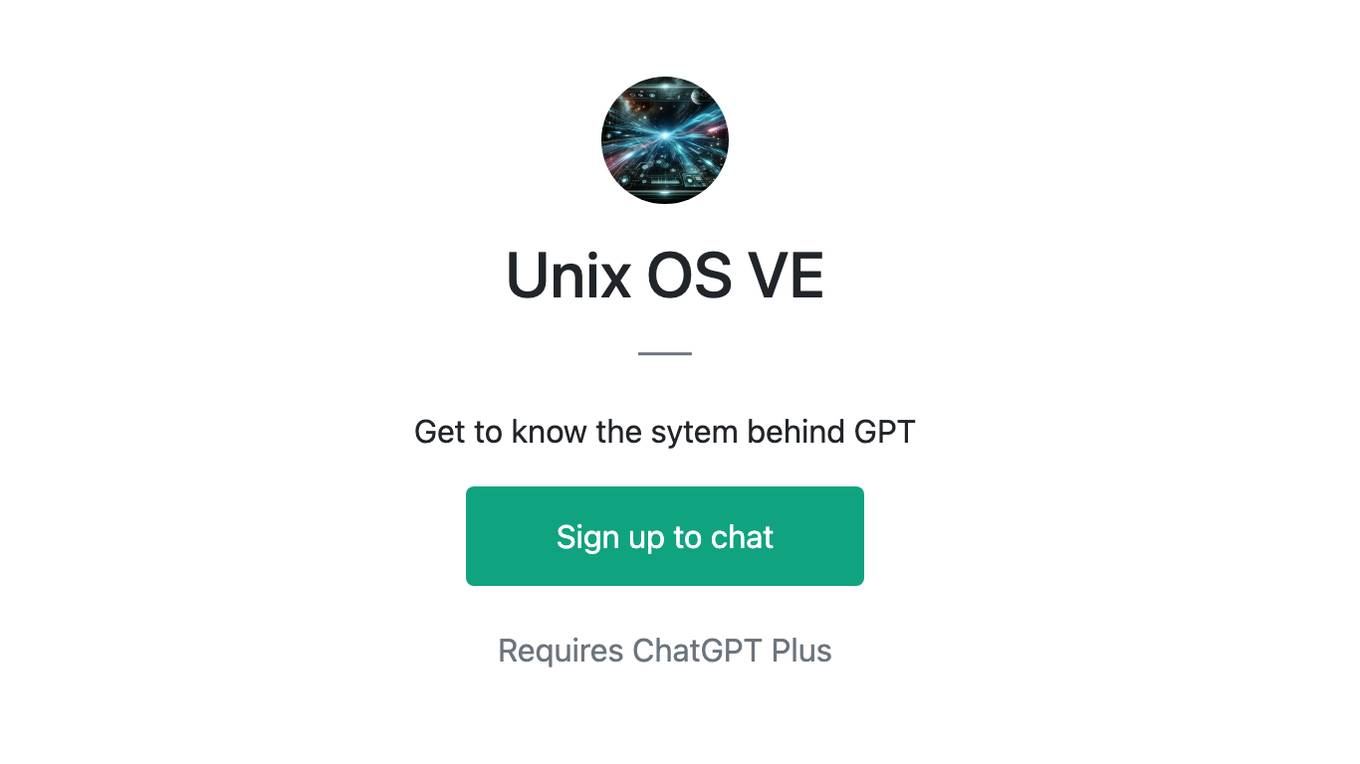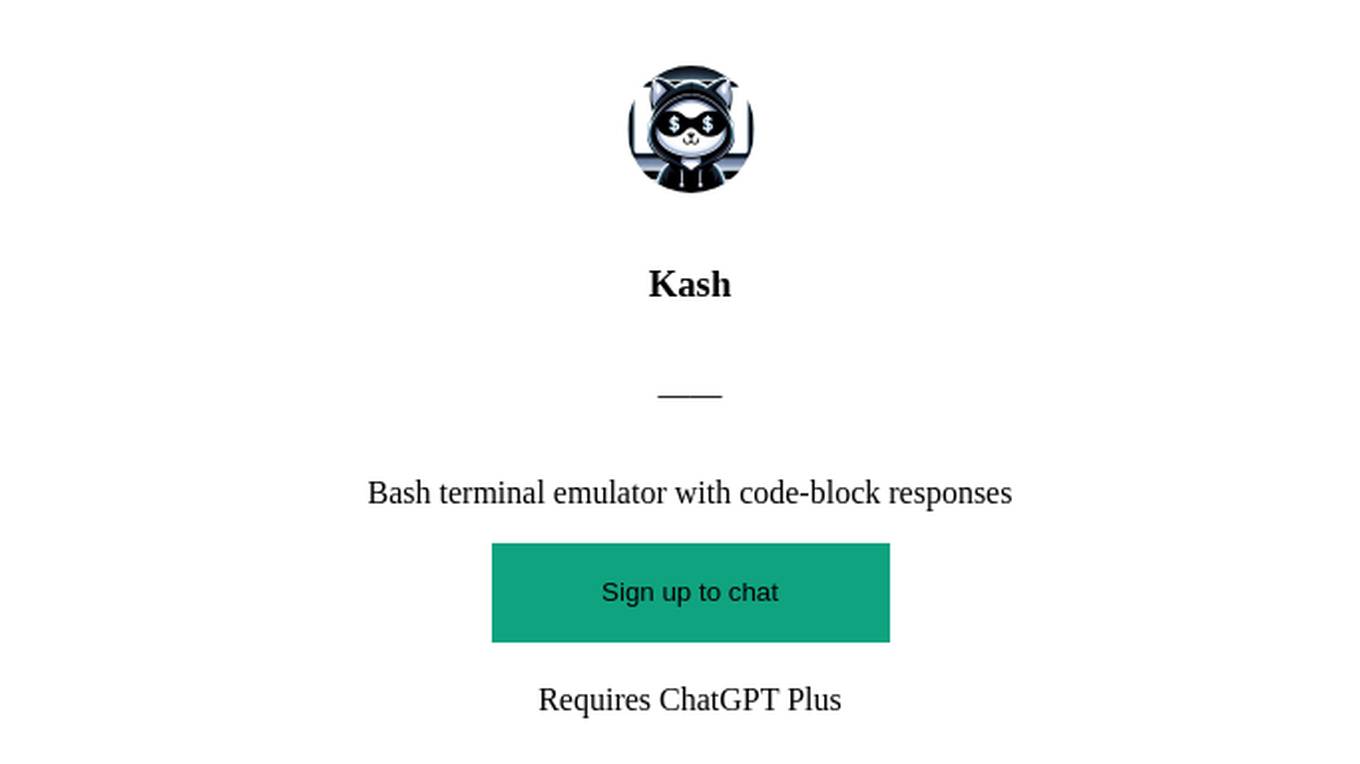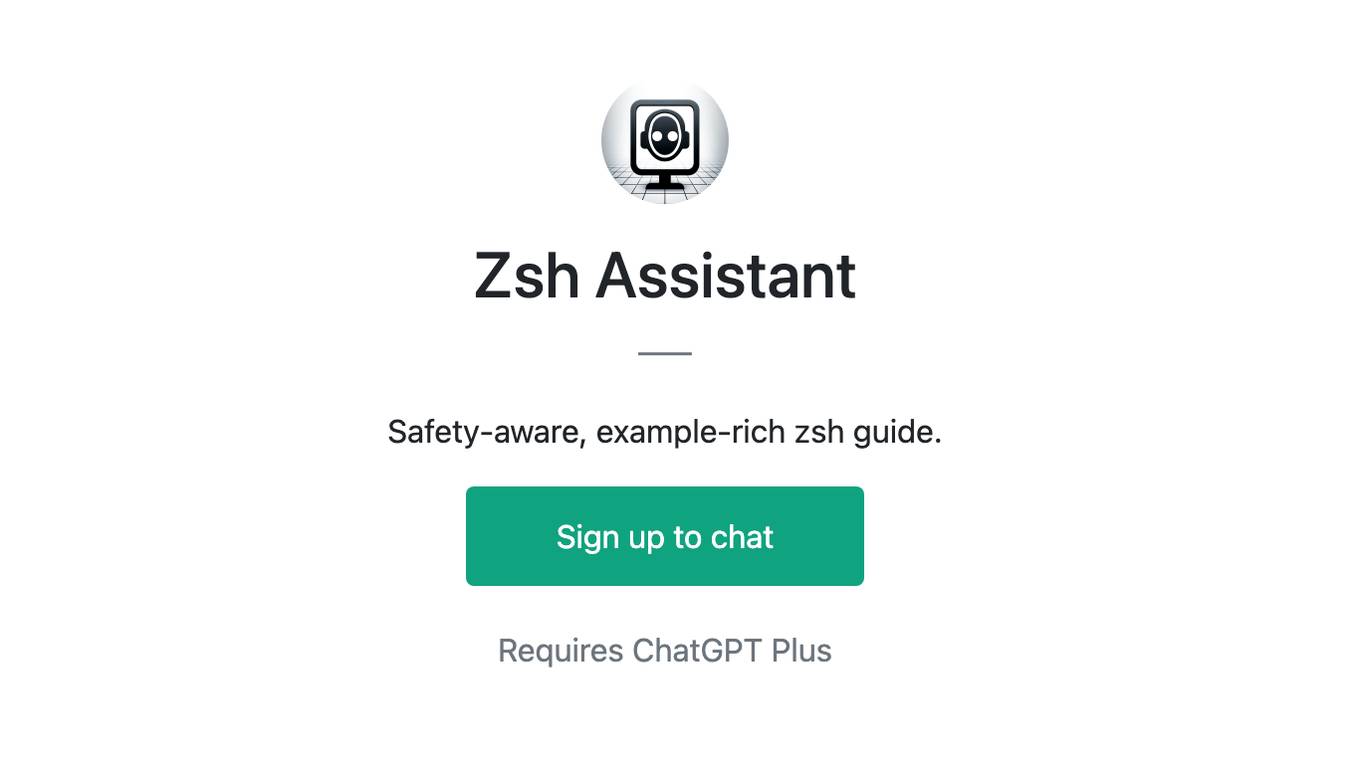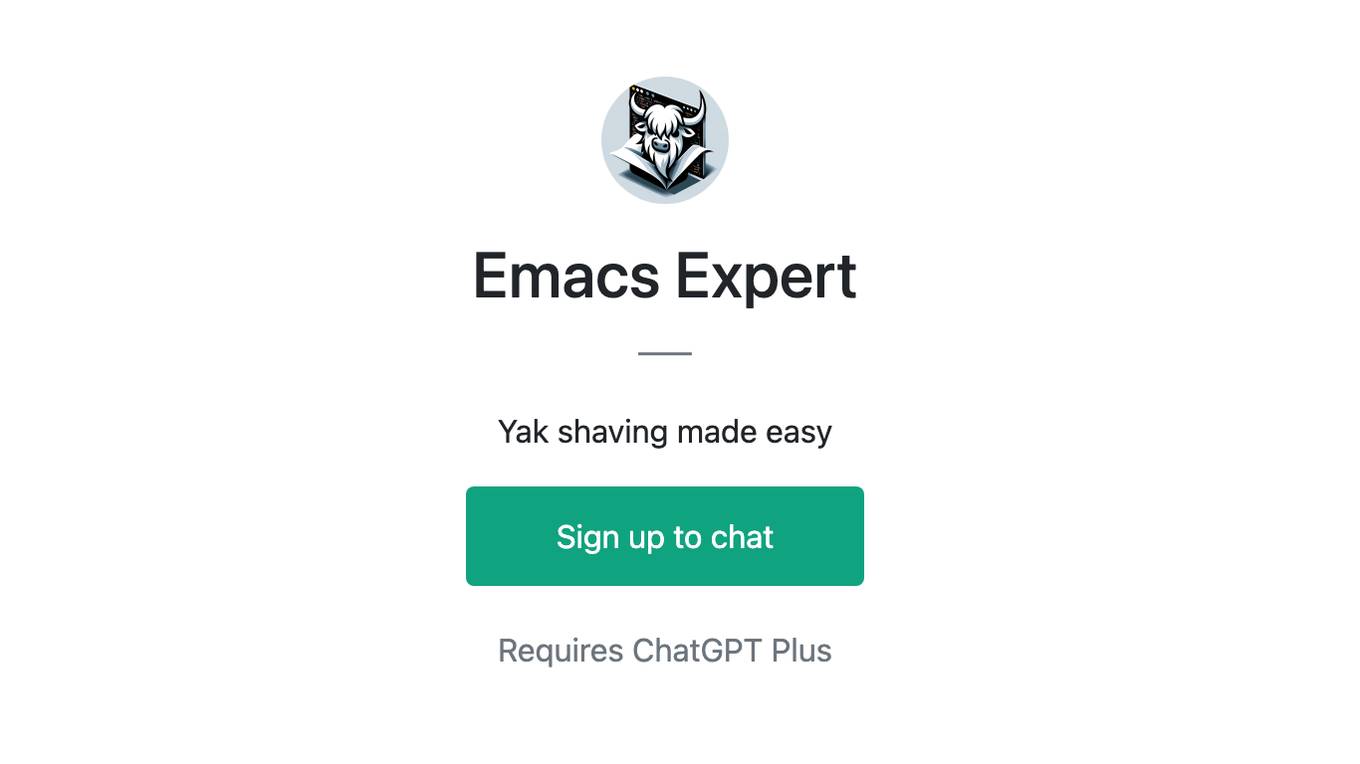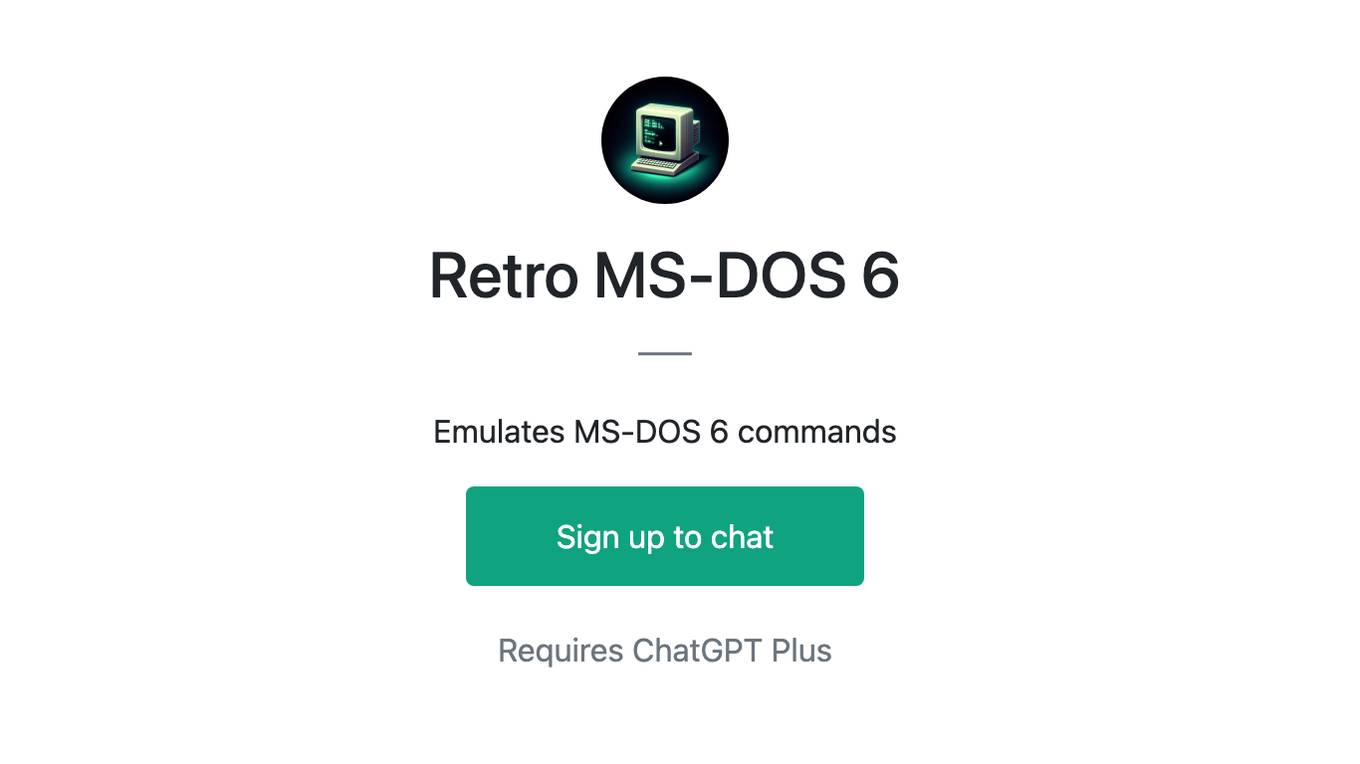Best AI tools for< Run System Updates >
20 - AI tool Sites

Cron AI
Cron AI is a free online tool that converts natural language descriptions of time-based events into cron expressions. Cron expressions are used to schedule jobs in Unix-like systems, such as Linux and macOS. Cron AI makes it easy to create cron expressions without having to learn the complex syntax of cron.

Deep Space
Deep Space is an all-in-one AI-powered construction management software platform designed for mid-sized commercial builders in Australia and New Zealand. It replaces the need for multiple tools by providing a connected operating system that integrates costings, schedules, site teams, and systems. The platform offers features such as preconstruction, scheduling, procurement, commercial delivery, documentation, HSEQ reporting, and AI assistant solutions. Deep Space aims to streamline project management processes, improve visibility, and enhance coordination across the full project lifecycle.
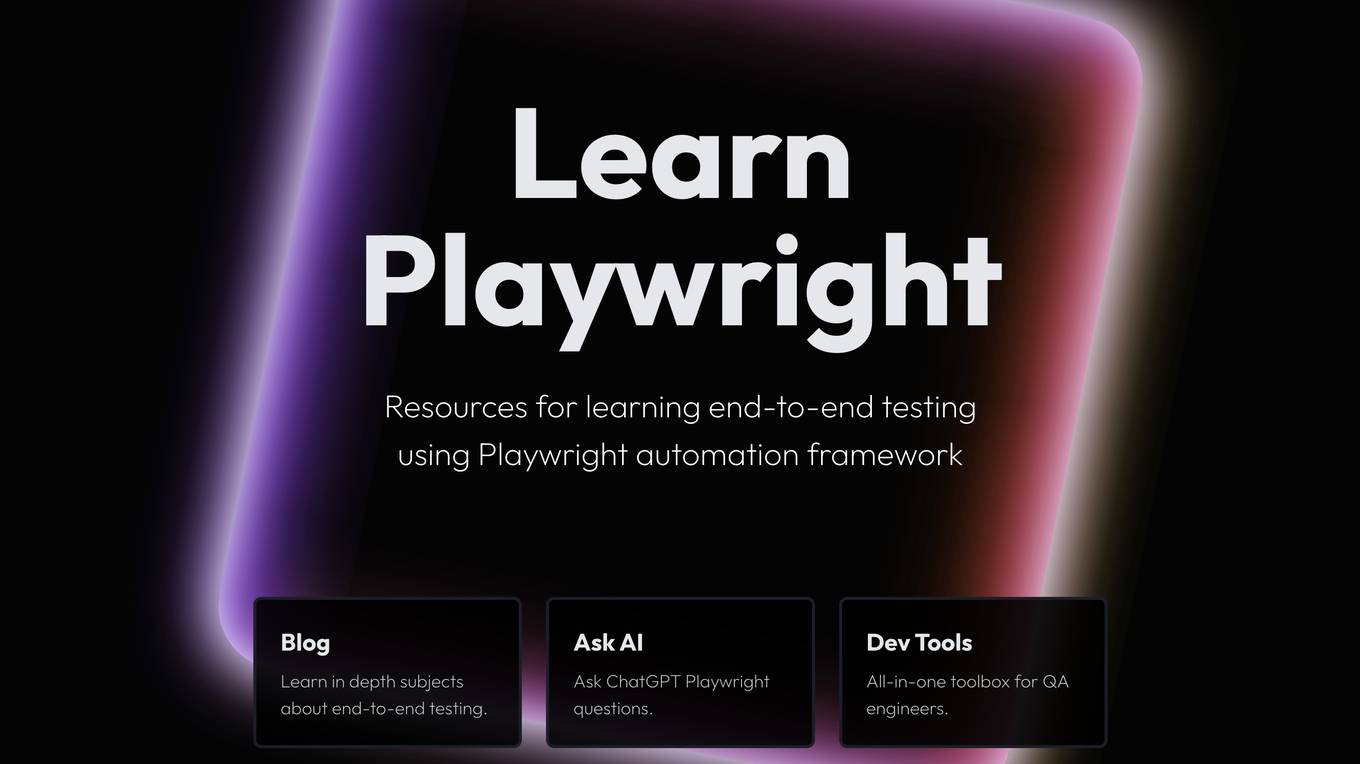
Error Handling Application
The website is currently experiencing an application error, indicating a server-side exception. Users encountering this error are advised to check the server logs for more information. The error digest number provided is 3308662818.
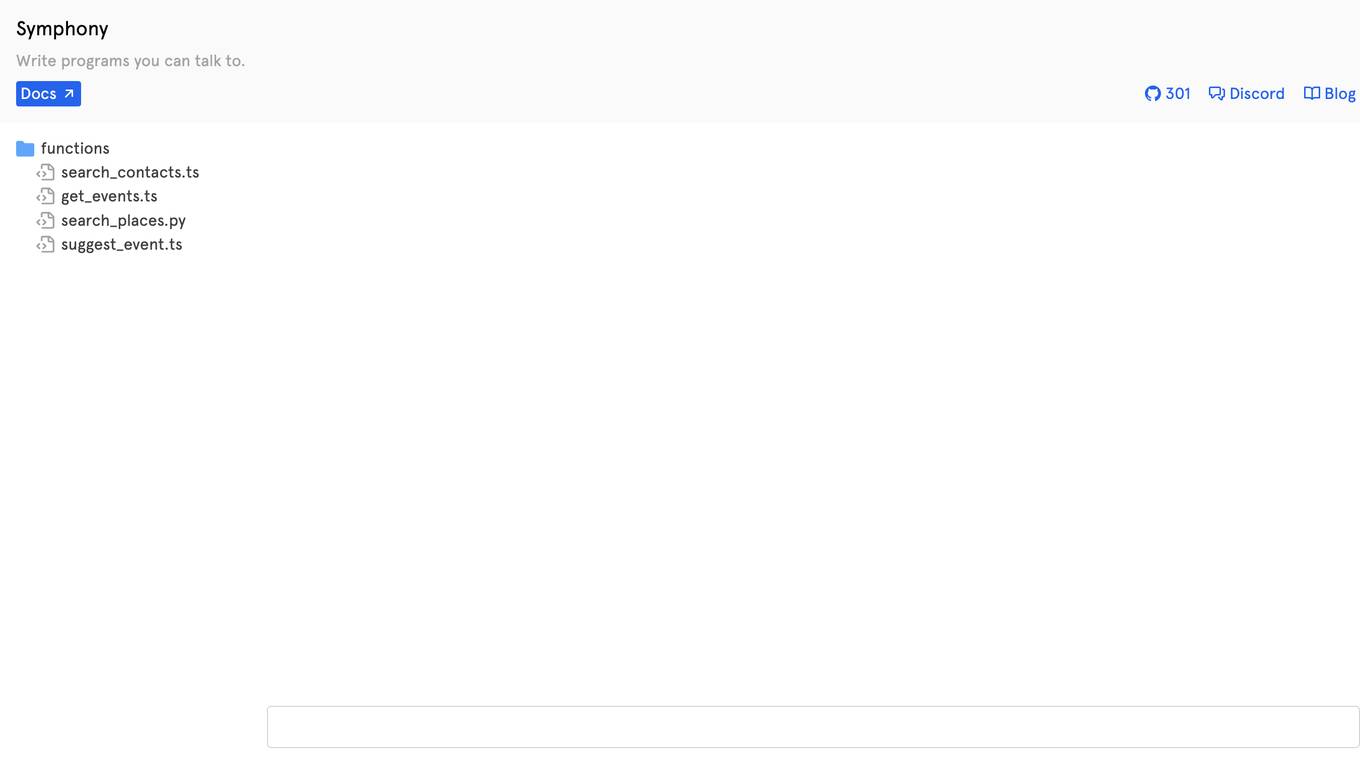
Symphony
Symphony is a platform that allows users to write programs using natural language. It enables users to interact with the system by talking to it, making programming more accessible and intuitive. Symphony simplifies the process of coding by translating spoken commands into executable code, providing a user-friendly programming experience.

Dora
Dora is a no-code 3D animated website design platform that allows users to create stunning 3D and animated visuals without writing a single line of code. With Dora, designers, freelancers, and creative professionals can focus on what they do best: designing. The platform is tailored for professionals who prioritize design aesthetics without wanting to dive deep into the backend. Dora offers a variety of features, including a drag-and-connect constraint layout system, advanced animation capabilities, and pixel-perfect usability. With Dora, users can create responsive 3D and animated websites that translate seamlessly across devices.
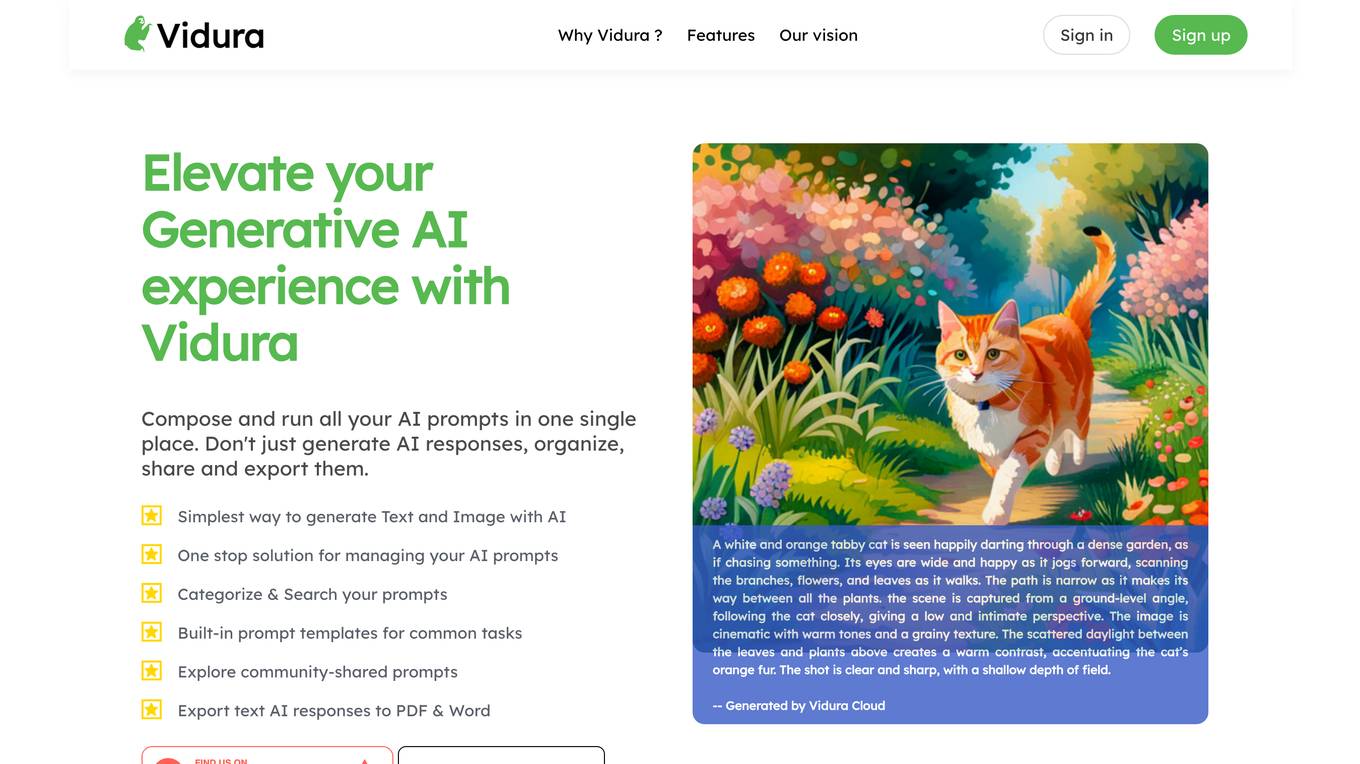
Vidura
Vidura is a prompt management system integrated with multiple AI systems, designed to enhance the Generative AI experience. Users can compose, organize, share, and export AI prompts easily. It offers features like categorizing prompts, built-in templates, prompt history, dynamic prompting, and community sharing. Vidura aims to make Generative AI accessible and user-friendly, providing a platform for learning and collaboration in the AI community.
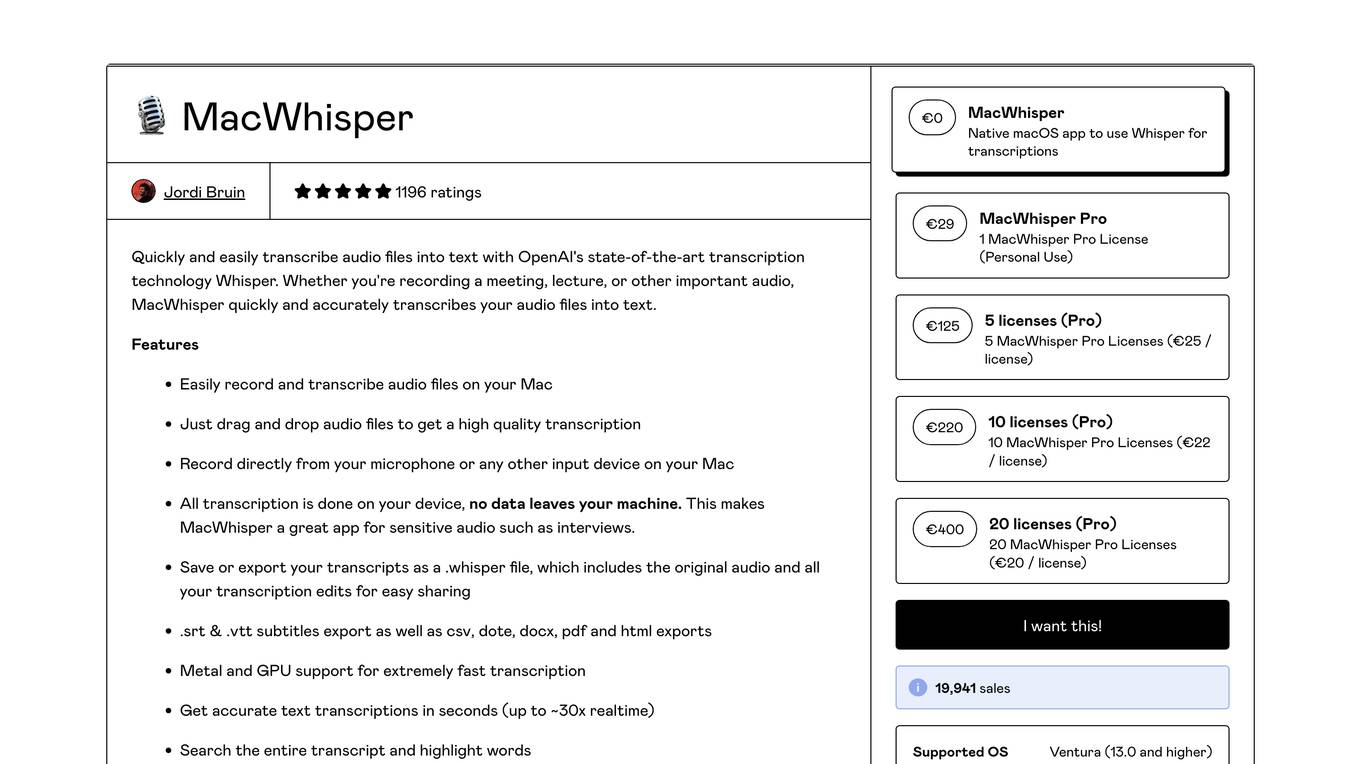
MacWhisper
MacWhisper is a native macOS application that utilizes OpenAI's Whisper technology for transcribing audio files into text. It offers a user-friendly interface for recording, transcribing, and editing audio, making it suitable for various use cases such as transcribing meetings, lectures, interviews, and podcasts. The application is designed to protect user privacy by performing all transcriptions locally on the device, ensuring that no data leaves the user's machine.
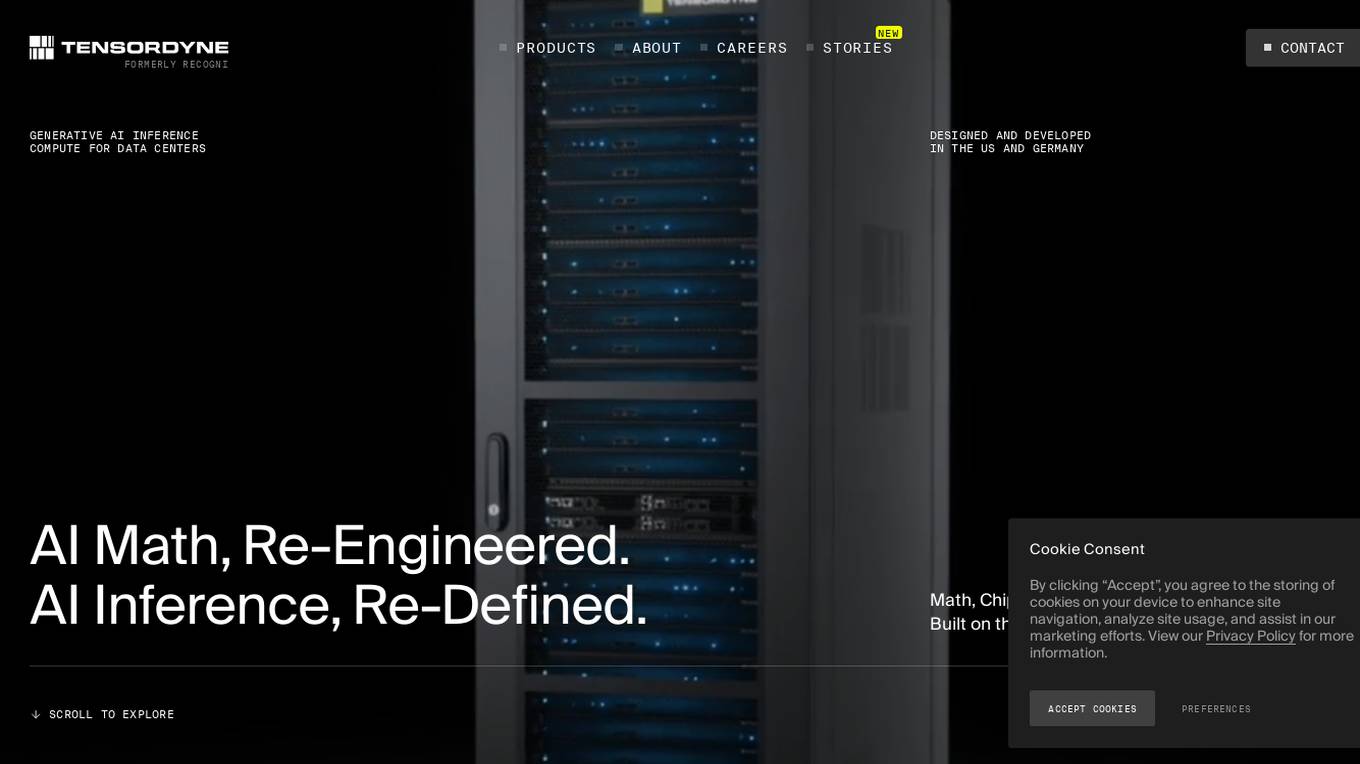
Tensordyne
Tensordyne is a generative AI inference compute tool designed and developed in the US and Germany. It focuses on re-engineering AI math and defining AI inference to run the biggest AI models for thousands of users at a fraction of the rack count, power, and cost. Tensordyne offers custom silicon and systems built on the Zeroth Scaling Law, enabling breakthroughs in AI technology.
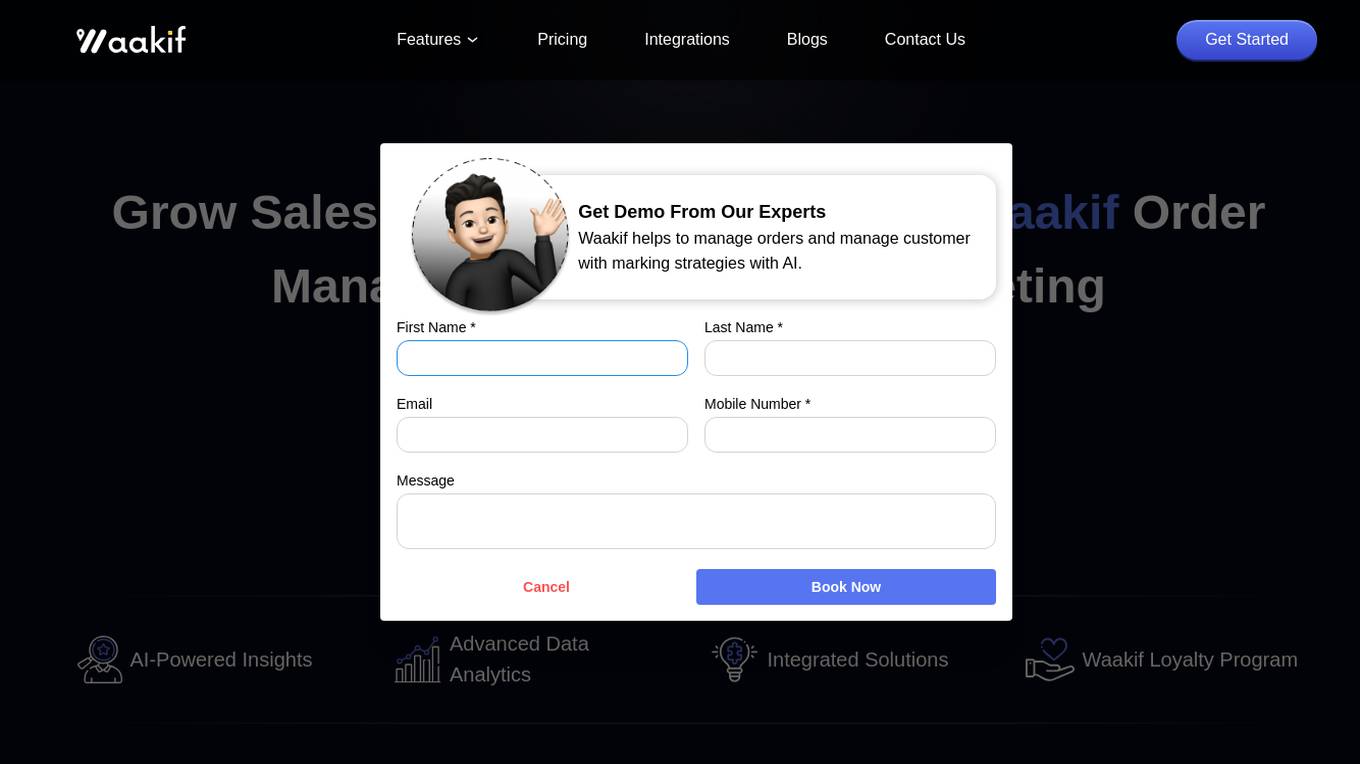
Waakif
Waakif is an AI-powered online ordering, loyalty programs, and marketing platform designed to streamline operations, boost customer retention, and provide actionable insights for businesses. It offers features such as order management, customer feedback, AI insights, loyalty programs, online storefront, WhatsApp marketing, and more. With advanced data analytics and integrated solutions, Waakif aims to supercharge businesses and drive growth through smart campaigns and engagement strategies.

Modal
Modal is a high-performance cloud platform designed for developers, AI data, and ML teams. It offers a serverless environment for running generative AI models, large-scale batch jobs, job queues, and more. With Modal, users can bring their own code and leverage the platform's optimized container file system for fast cold boots and seamless autoscaling. The platform is engineered for large-scale workloads, allowing users to scale to hundreds of GPUs, pay only for what they use, and deploy functions to the cloud in seconds without the need for YAML or Dockerfiles. Modal also provides features for job scheduling, web endpoints, observability, and security compliance.

Warp
Warp is a terminal reimagined with AI and collaborative tools for better productivity. It is built with Rust for speed and has an intuitive interface. Warp includes features such as modern editing, command generation, reusable workflows, and Warp Drive. Warp AI allows users to ask questions about programming and get answers, recall commands, and debug errors. Warp Drive helps users organize hard-to-remember commands and share them with their team. Warp is a private and secure application that is trusted by hundreds of thousands of professional developers.
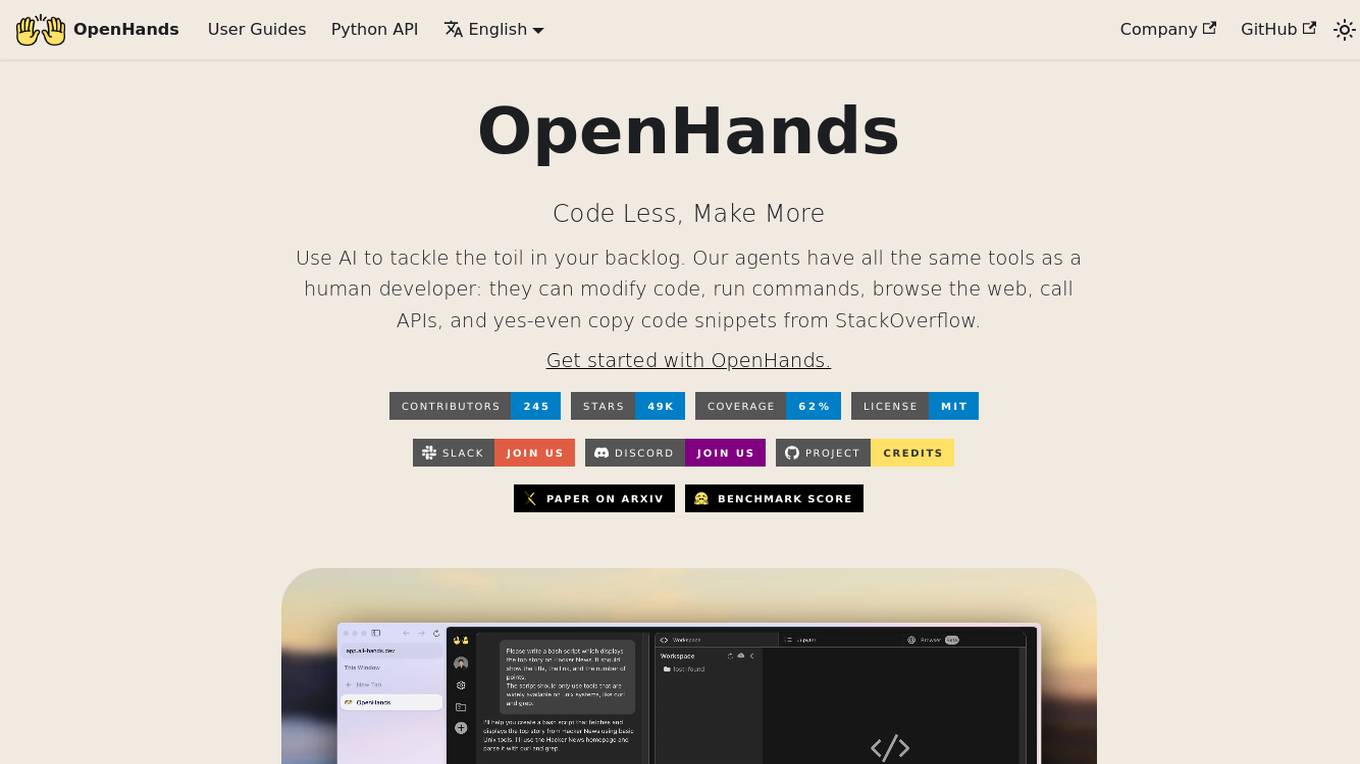
OpenHands
OpenHands is an AI tool developed by All Hands AI, Inc. that empowers users to streamline their development process by leveraging artificial intelligence. The tool allows users to automate tasks typically performed by human developers, such as modifying code, running commands, browsing the web, calling APIs, and even copying code snippets from StackOverflow. OpenHands aims to help users save time and increase productivity by handling repetitive and time-consuming tasks efficiently.
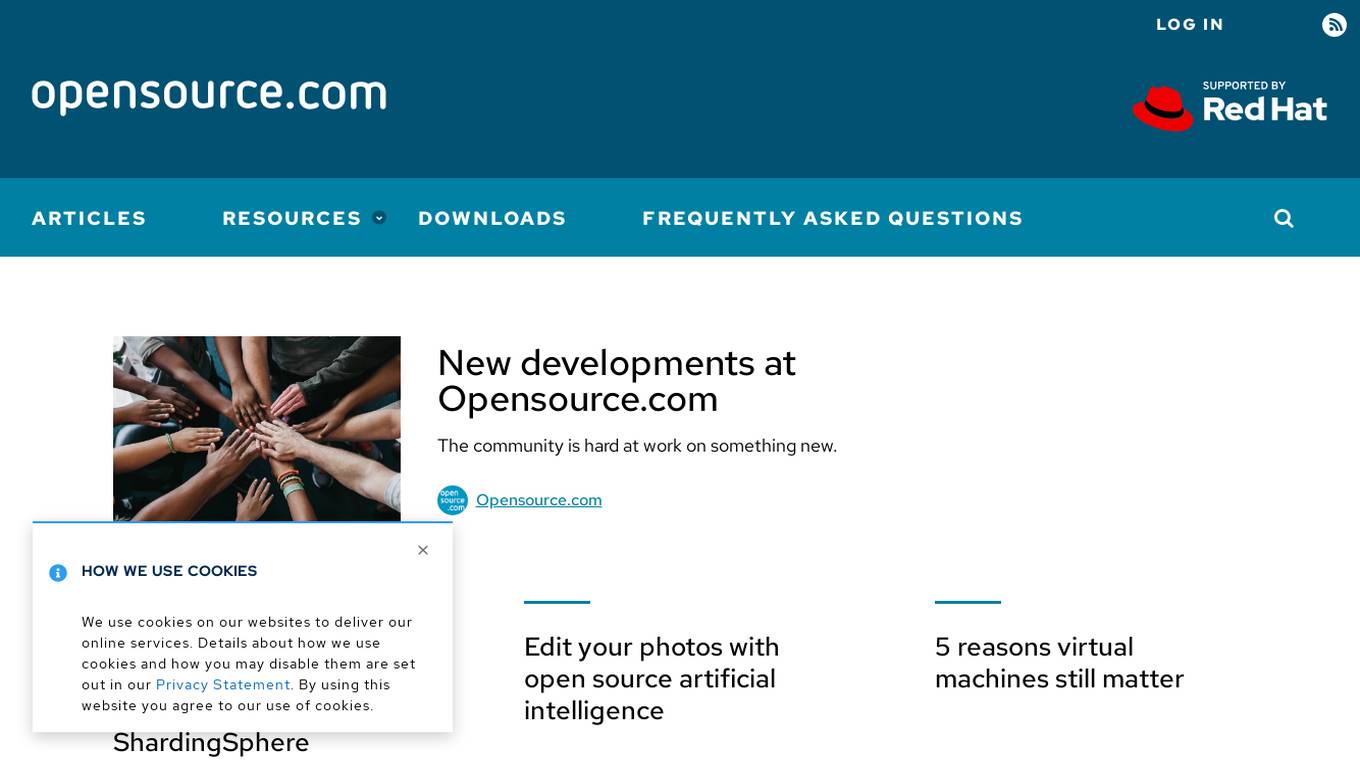
Opensource.com
Opensource.com is a platform that provides a wealth of information and resources related to open source technologies, projects, and applications. It covers a wide range of topics such as open source alternatives, Linux downloads, community developments, and tips for running virtual events. The website also features articles on various open source tools, technologies, and best practices, making it a valuable resource for developers, tech enthusiasts, and open source advocates.

Feng My Shui
Feng My Shui is an application that allows users to generate images using a combination of Midjourney and Stable Diffusion XL AI models. It offers a user-friendly interface and allows users to generate images without the need for a Midjourney account or Discord app. The application also includes a credit system that allows users to generate a certain number of images per month. Additional credits can be purchased if needed. Feng My Shui is available on the web, iOS, and Android devices.
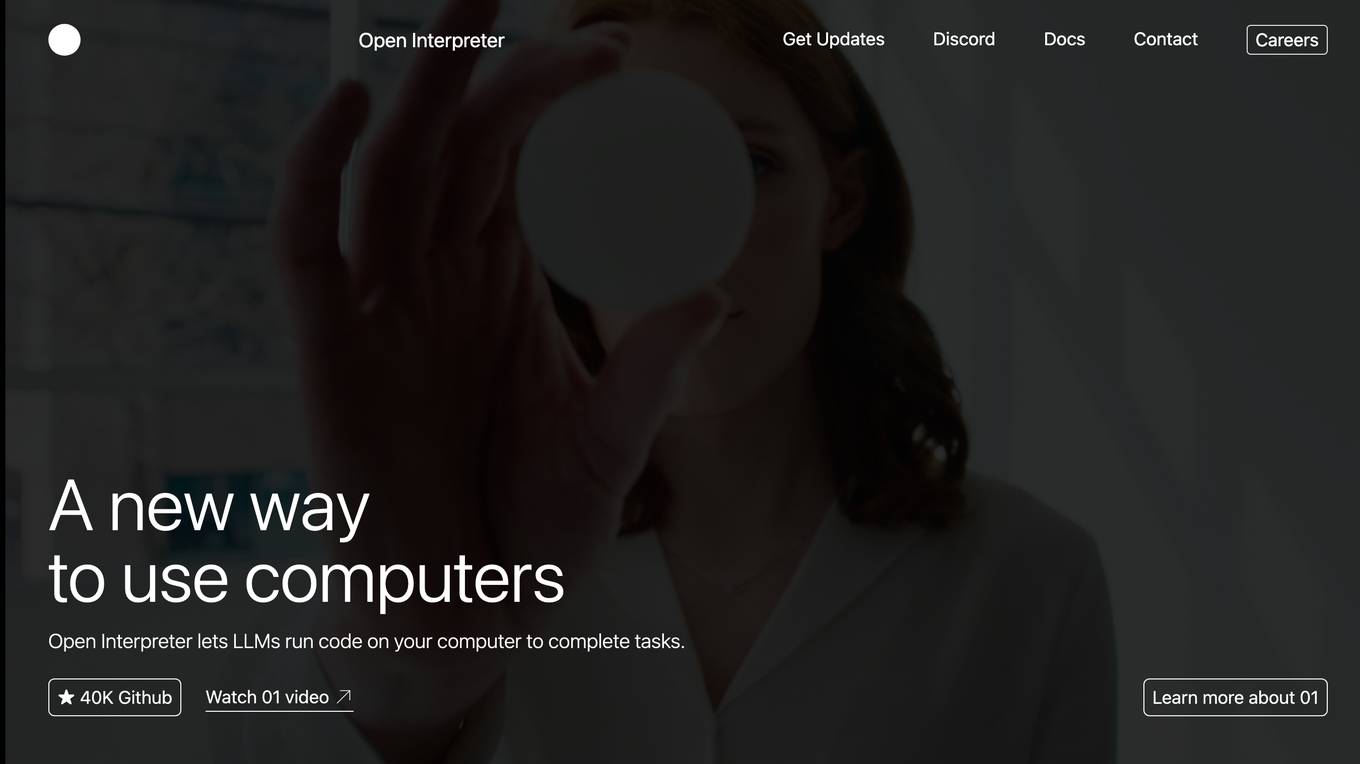
Open Interpreter Project
The Open Interpreter Project is an AI tool that enables users to run code on their computers to complete tasks. It offers a new way of interacting with computers by leveraging LLMs (Large Language Models). The project aims to simplify coding tasks and enhance productivity by providing a platform for executing code seamlessly.
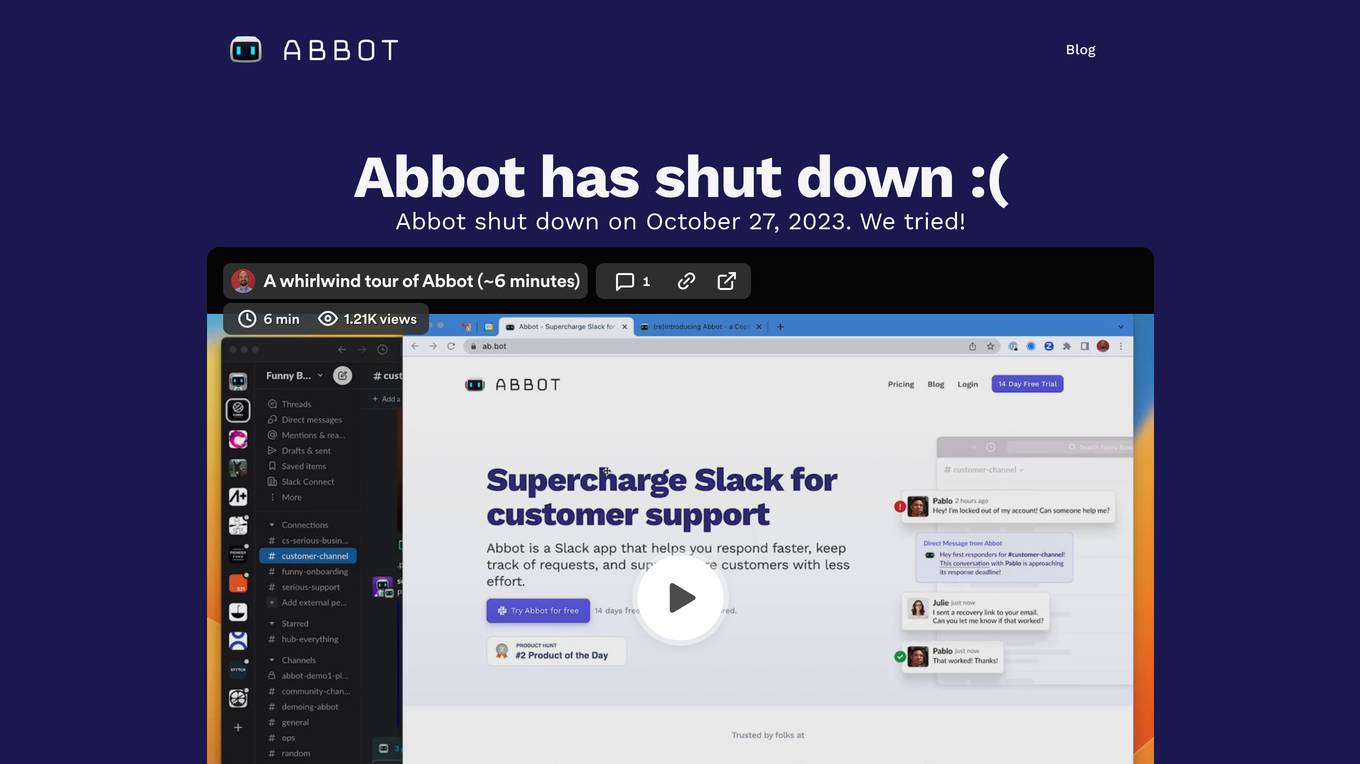
Abbot
Abbot is a programmable smart assistant designed to enhance customer success by working alongside users in team chat environments. It helps in tracking customer conversations, automating tasks, integrating with various systems, providing insights, and ensuring timely responses. Abbot can be trained on documentation, run custom scripts, summarize conversations, and suggest next steps. It offers security compliance and different pricing plans tailored for teams and enterprises.
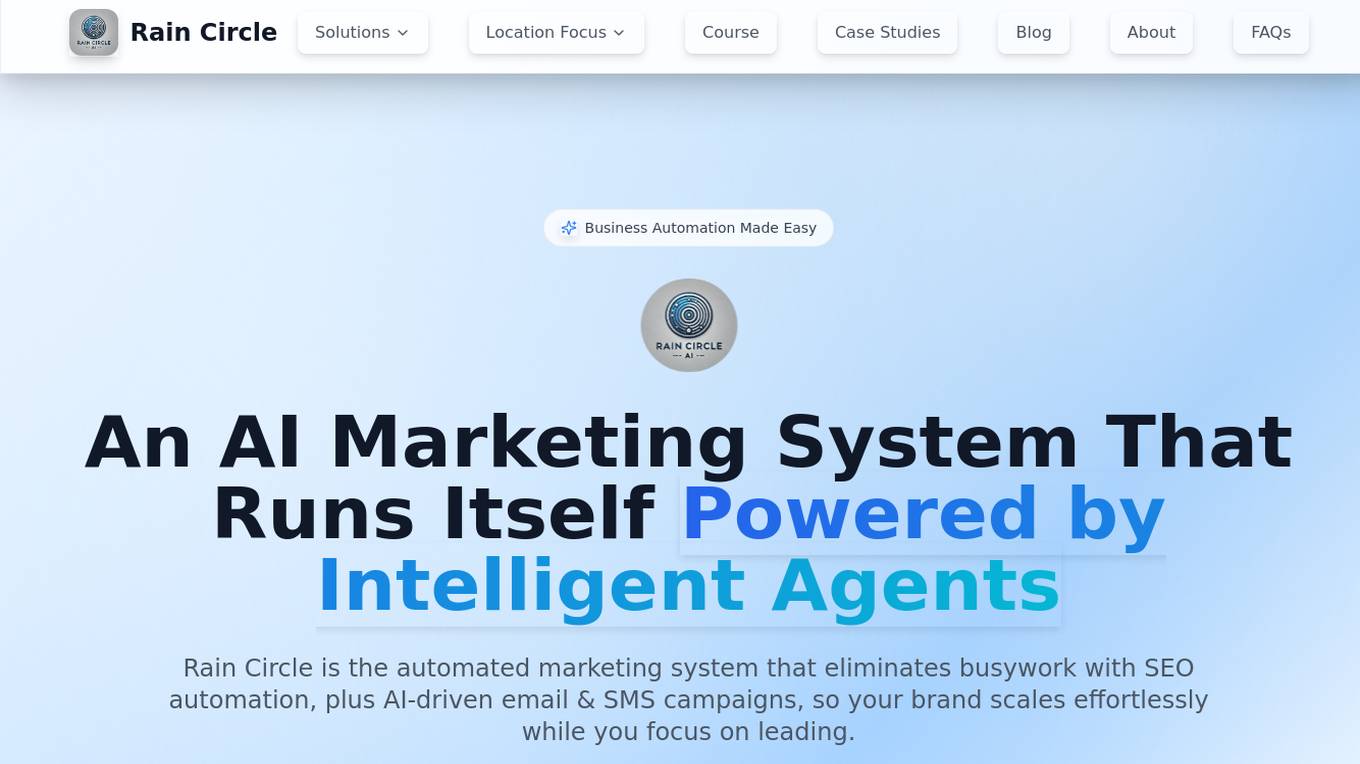
Rain Circle
Rain Circle is an AI marketing system that offers business automation and digital marketing solutions. It provides SEO automation, AI-driven email & SMS campaigns, and aims to help brands scale effortlessly while focusing on growth. The platform bridges the gap between technology and society, making advanced business systems accessible and understandable for entrepreneurs. Rain Circle empowers businesses to thrive in the digital age by offering education, technology translation, and societal impact.
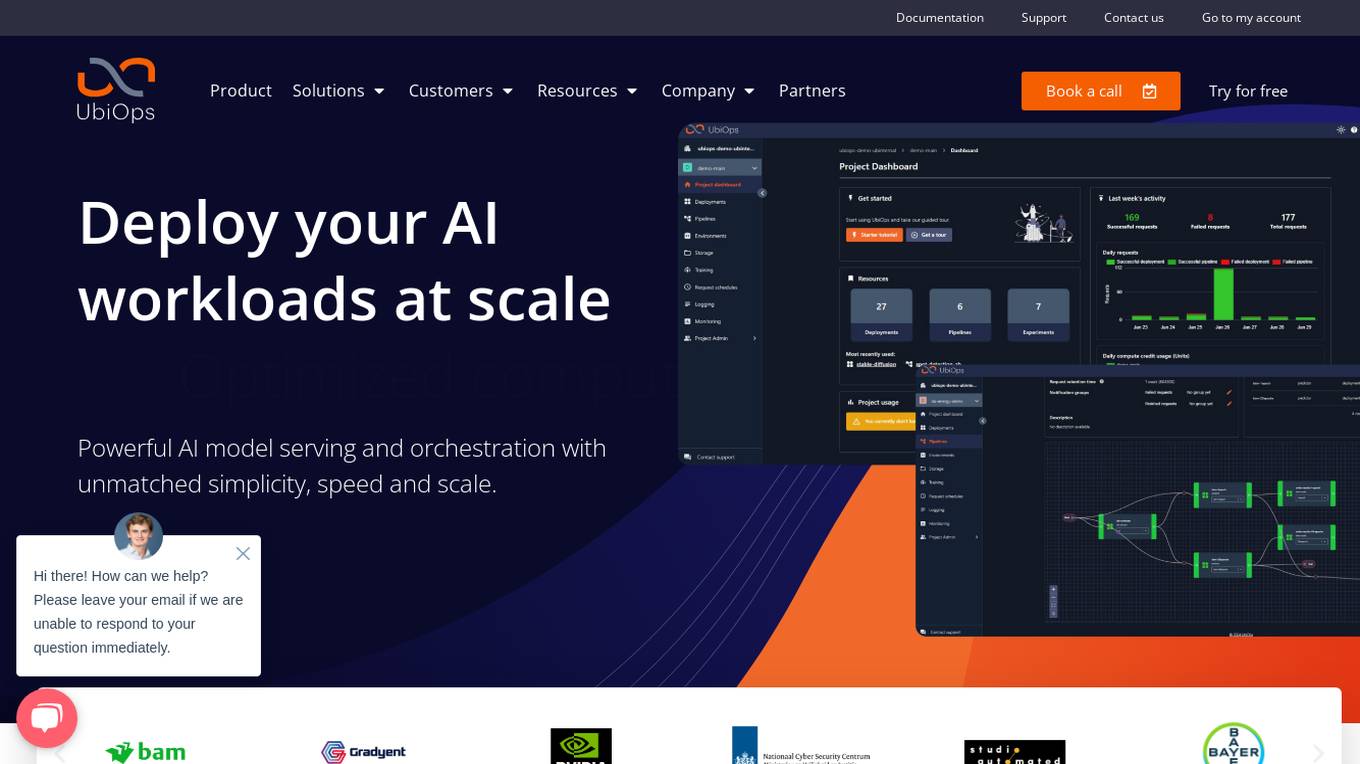
UbiOps
UbiOps is an AI infrastructure platform that helps teams quickly run their AI & ML workloads as reliable and secure microservices. It offers powerful AI model serving and orchestration with unmatched simplicity, speed, and scale. UbiOps allows users to deploy models and functions in minutes, manage AI workloads from a single control plane, integrate easily with tools like PyTorch and TensorFlow, and ensure security and compliance by design. The platform supports hybrid and multi-cloud workload orchestration, rapid adaptive scaling, and modular applications with unique workflow management system.

PurplePro
PurplePro is an AI-powered loyalty club platform designed to help businesses launch and manage loyalty programs effortlessly. With features like referral management, streaks, quizzes, variable rewards, and automated triggers, PurplePro aims to enhance customer engagement, retention, and acquisition. The platform offers advanced customization and segmentation options, making it suitable for direct-to-consumer (D2C) brands looking to boost customer loyalty and increase revenue. PurplePro's AI capabilities enable users to create and implement effective loyalty campaigns in just a few clicks, without the need for coding knowledge. The platform also provides a seamless integration with Shopify, making it easy for businesses to set up and activate their loyalty programs.
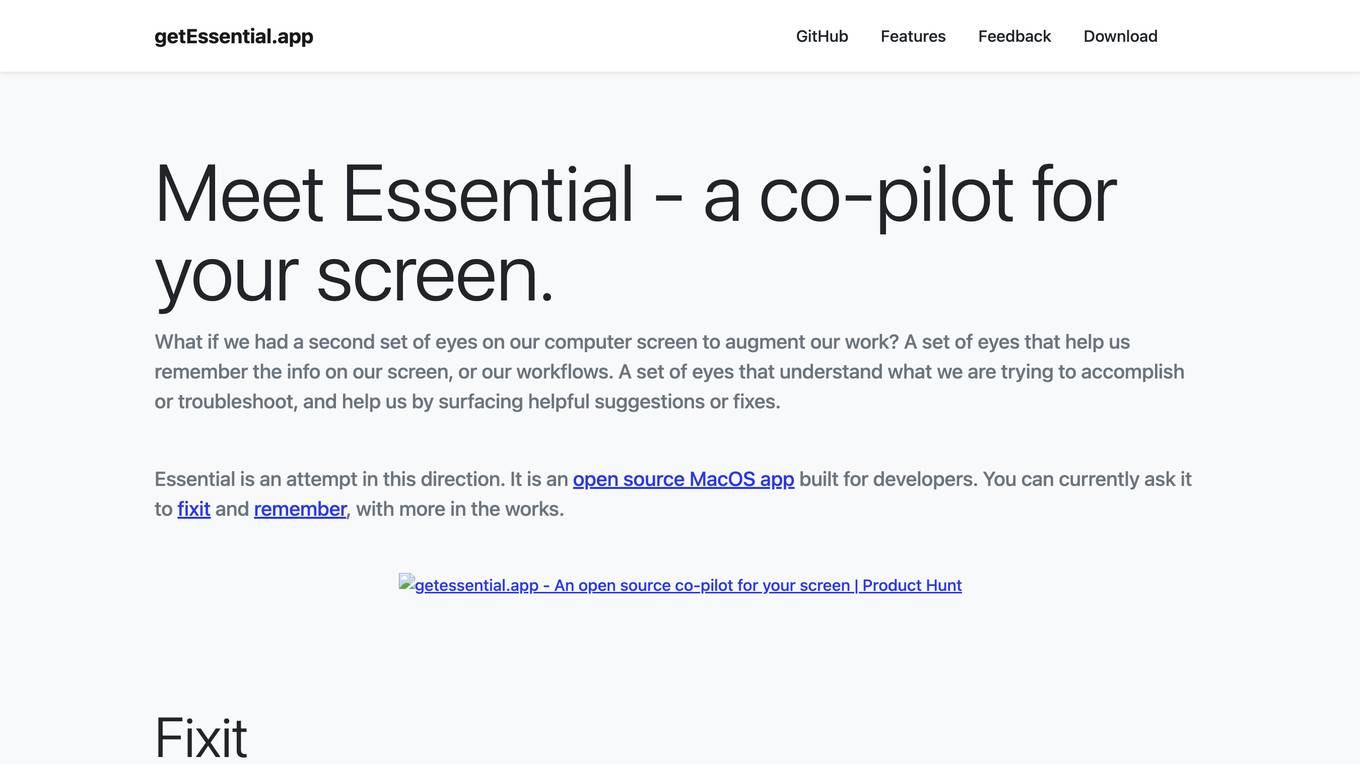
Essential
Essential is an open-source macOS app that acts as a co-pilot for your screen. It uses computer vision and OpenAI's LLMs to understand what's on your screen and can help you troubleshoot any error messages you run into. Essential can also remember important information from your screen, such as code snippets or website URLs, and make them easily accessible later. All of this happens entirely on your Mac, with no data ever leaving your system.
0 - Open Source AI Tools
20 - OpenAI Gpts
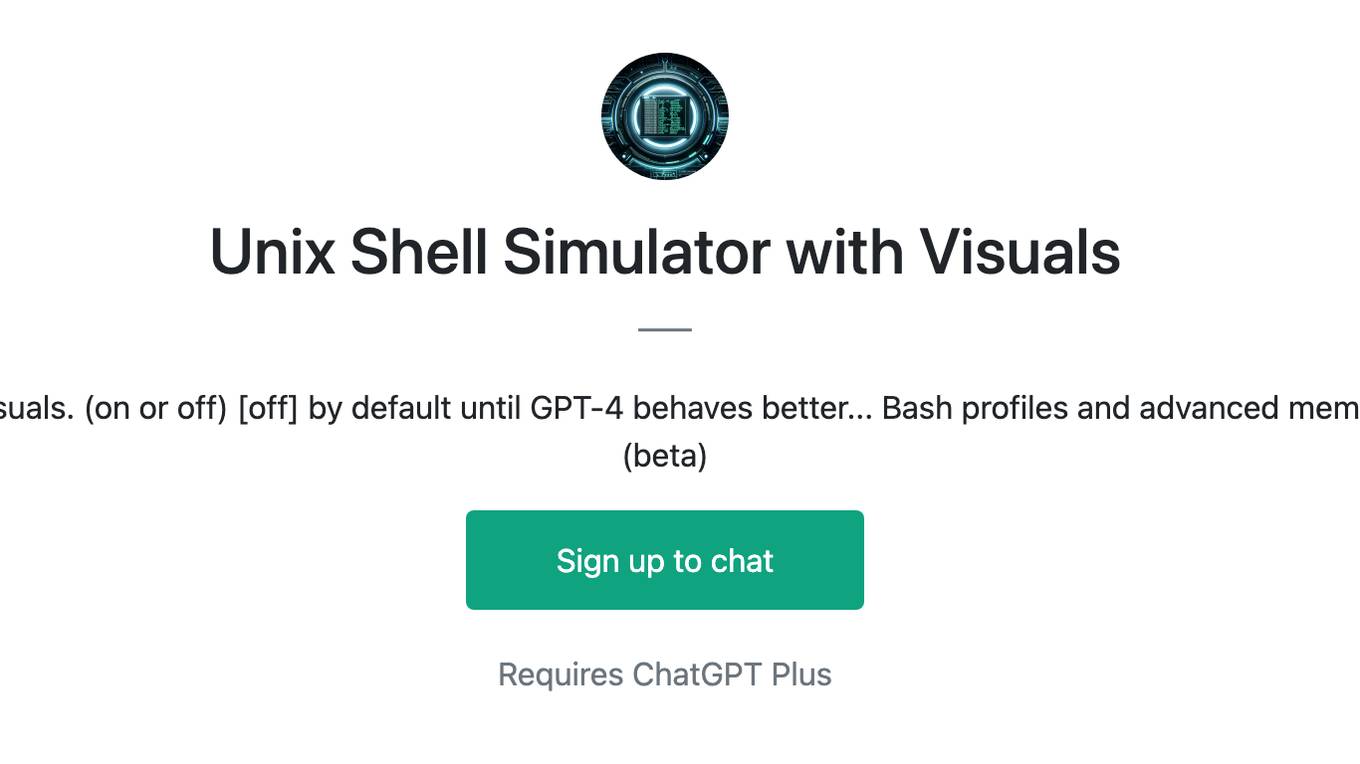
Unix Shell Simulator with Visuals
UNIX terminal responses with OS process visuals. (on or off) [off] by default until GPT-4 behaves better... Bash profiles and advanced memory system for realistic bash simulation. V1 (beta)

Consulting & Investment Banking Interview Prep GPT
Run mock interviews, review content and get tips to ace strategy consulting and investment banking interviews

Dungeon Master's Assistant
Your new DM's screen: helping Dungeon Masters to craft & run amazing D&D adventures.

Database Builder
Hosts a real SQLite database and helps you create tables, make schema changes, and run SQL queries, ideal for all levels of database administration.

Restaurant Startup Guide
Meet the Restaurant Startup Guide GPT: your friendly guide in the restaurant biz. It offers casual, approachable advice to help you start and run your own restaurant with ease.

Community Design™
A community-building GPT based on the wildly popular Community Design™ framework from Mighty Networks. Start creating communities that run themselves.

Code Helper for Web Application Development
Friendly web assistant for efficient code. Ask the wizard to create an application and you will get the HTML, CSS and Javascript code ready to run your web application.

